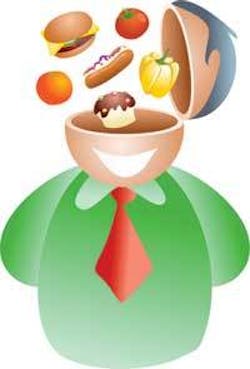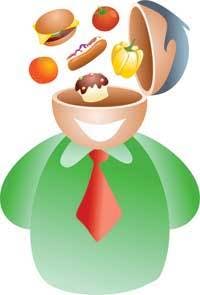Just lunch
You are what you eat! We all know how truethat statement is. That’s why we are thankful for the people who help preserve standards in the food industry. That’s why more and more people these days are becoming vegetarians. That’s why the growth of the organic food industry is going through the roof. The history of organic food - that is, food that is nurtured and grown directly from the ground - is quite long and lately becoming complicated.
When I think about “organic,” I think about a prerequisite for getting into dental school. Organic chemistry centers on the element carbon, hence organic food means to capture solar energy and convert it into useful energy through our food, in the form of nutrients. Think photosynthesis and the Krebs cycle. To purists, the organic food in supermarkets isn’t necessarily as organic as we like to think. They claim there is a big difference between truly organic farming and industrial organic foods. That’s not the way it always was.
Organic farmers have been around since the dawn of agriculture. The father of organic farming, J.I. Rodale, was a health nut from the lower east side of New York. He wrote the organic farming bible in 1940, titled Organic Farming and Gardening. That same book was rediscovered during the hippie movement of the 1960s when the organic revolution really began. San Francisco’s People’s Park still exists as a monument to a time when a group of hippies, calling themselves “The Robin Hood Commission,” took over a vacant lot from the University of California to grow their uncontaminated food. The movement to grow natural food was not only a personal movement but a political one as well because the people who made napalm and Agent Orange also manufactured the chemicals that were contaminating the food.
One of the original members of that movement, Gene Kahn, is the founder of Cascadian Farms, one of the original communal hippie farms that grew organic foods. The project was originally called the New Cascadian Survival and Reclamation Project and was located 75 miles northeast of Seattle. Gene Kahn was a 24-year-old purist who was inspired by Rodale’s book to change the American food system. He was a true pioneer of what has become the biggest industrial food movement in history. Today, however, Kahn is a vice president in the General Mills network because he sold Cascadian Farms to the giant conglomerate. Kahn went from a pioneer organic farmer to an agribusinessman. In so doing, he went from growing organic food to processing food. He became what he started out to conquer.
After Gene Kahn went corporate, he served on the USDA’s National Organic Standards Board and was instrumental in creating new standards for organic foods. It’s hard to believe that foods like TV dinners can now get the “organic” seal of approval. This drives the purists crazy. Many people in the industry have called the one-time hippie pioneer a sell-out. Kahn defends his move by saying, “You have a choice of getting sad about all that or moving on. We tried hard to build a cooperative community and a local food system, but at the end of the day it wasn’t successful. This is just lunch for most people. Just lunch. We can call it sacred, we can talk about communion, but it’s just lunch.”
I read the account of Gene Kahn and Cascadian Farms in a delightful book titled The Omnivore’s Dilemma by Michael Pollan. I related well to Kahn’s statement because I had gone through many of those same thoughts and feelings during my career in dentistry. To many patients, dentistry is just teeth. To corporate America, which creates benefits for its workers, it’s just teeth. I was reminded of a T-shirt I saw a colleague wearing at a dental meeting I attended. It read, “It’s Just a ______Tooth.” I am certainly aware of the fight that the idealists and purists are up against, but someone has to do it or else we lose the standard.
A few days after reading Pollan’s book, I met my trainer, Rob, at the gym. Rob is an ex-professional ice skater who earns his keep by tutoring young skaters. He earns a few extra dollars by trying to keep old guys like me in shape. Rob is serious about diet and exercise, and knows about as much as anyone I have met. He only partially believes the saying, “You are what you eat.” He also believes this: “You are what you do.” And he has me doing a lot. One day he looked like he needed a “pick me up.”
“What’s wrong?” I asked.
He told me how he had argued with another trainer that morning who was showing a young girl improper technique. He couldn’t stand to sit back and watch unqualified people training young athletes. It upset him ... he is a purist. Mostly he was upset because he felt he could do a better job, and he finds it hard to get good clients.
I told Rob the Gene Kahn story. I told him not to get upset. Every industry from food to physical fitness to dentistry has to fight against the public’s acceptance of mediocrity. In every industry, it takes a few good people to hold onto the standards, or else the industry falls apart. I told Rob of some good dentists I know who certainly could do average work, but they go the extra mile in order to maintain a standard of excellence.
In my book, The Art of the Examination, I tell a story from management guru Peter Drucker of Phidias, the ancient Greek sculptor who made the statues that stand on the roof of the Parthenon. When Phidias submitted his bill, the accountant refused to pay it claiming the statues were only visible from the front, and the bill was for sculptures in the round. The accountant claimed no one could see the backs of the statues. Phidias replied, “You are wrong ... the gods can see them.”
I explained to Rob that we do ideal work for a reason. There will be days when we feel our work isn’t being appreciated. There will be strong feelings to give up and say, “What’s the use?” I urge all dentists to reject those thoughts and stay the course, even when no one is looking but the gods. I certainly understand the public’s feelings toward any industry, but they don’t have the knowledge professionals have. I will never forget that saying on the back of the dentist’s T-shirt, because I really don’t understand how a professional can say that. The best advice I can give any young dentist is to never sell out. Never, ever sell out.
So, is it true we are what we eat? Or are we what we do? I think more than anything, we are what we think!Barry F. Polansky, DMD, practices in Cherry Hill, N.J. Author of the book, The Art of the Examination, and publisher of “Dental Life,” he is on the visiting faculty of The Pankey Institute. E-mail him at [email protected].

